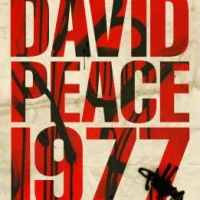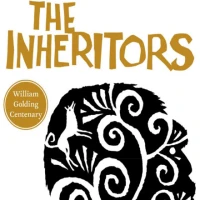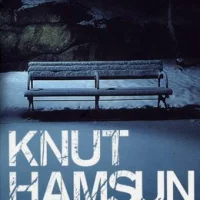Where There’s Love, There’s Hate, by Adolfo Bioy Casares and Silvina Ocampo and translated by Suzanne Jill Levine and Jessica Ernst Powell
Some books are just delightful. The other day I finished a rereading of The Illiad, an epic poem over 3,000 years old full of tragedy and loss and extraordinary humanity. It’s hard after something like that to know what to read next. Then I happened to read a review at JacquiWine’s Journal, here, and there was the answer. I bought Where There’s Love, There’s Hate immediately on finishing her review; started it that night and drank it down over the next couple of days. It’s a Tom Collins of a novel, refreshing and a perfect palate cleanser.
Here’s how it opens:
The last drops of arsenic (arsenicum album) dissolve in my mouth, insipidly, comfortingly. To my left, on the desk, I have a copy, a beautiful Bodoni, of Gaius Petronius’ Satyricon. To my right, the fragrant tea tray, with its delicate chinaware and its nutritive jars. Suffice to say that the book’s pages are well worn from innumerable readings; the tea is from China; the toast is crisp and delicate; the honey is from bees that have sipped from acacia flowers and lilacs. And so, in this encapsulated paradise, I shall begin to write the story of the murder at Bosque del Mar.
The narrator is Dr Humberto Huberman, and he starts his tale with him en route to a much-needed holiday and writing retreat by the seaside. As he assures the couple he shares a train carriage with, he is not only a respected physician but also a writer of screenplays, currently writing a contemporary film treatment of Petronius’ Satyricon. How could any reader not put their full trust in such a companion?
The arsenic by the way is not Dr Huberman committing suicide, it’s a daily medicinal dosage for Dr Huberman prides himself on having seen past the limitations of mere conventional medicine; Dr Huberman is a homeopath and it’s surely only my own prejudices that had me seeing him within a handful of pages as essentially a self-important quack.
As Huberman is carried through the night, he reflects to himself:
When will we at last renounce the detective novel, the fantasy novel and the entire prolific, varied, and ambitious literary genre that is fed by unreality? When will we return to the path of the salubrious picaresque and pleasant local color?
When indeed?

Huberman has a romantic dream of a seaside idyll and a secluded private resort. It’s certainly isolated: “The building, white and modern, appeared picturesquely set in the sand like a ship on the sea, or an oasis in the desert.” What he finds though is a failing hotel with windows that can’t be opened due to endless sandstorms; where heat and flies make the inside intolerable and treacherous terrain makes the outside positively dangerous.
The other guests include one of his patients, Mary, to whom he had recommended a rest cure at the same resort. With Mary is her sister Emilia and Emilia’s fiancé, Atuel, as well as a Dr Cornejo. The only other guest is an older man named Dr Manning who spends most of his time quietly losing at solitaire.
The hotel’s run by Dr Huberman’s cousin Esteban which soon explains why Dr Huberman’s really staying there – he’s not paying. There’s also Esteban’s resentful wife Andrea and her oddly sinister nephew, Miguel, a boy with a fondness for killing and embalming animals and a marked fixation on Mary. Finally, there’s an elderly and possibly simple typist who wanders about swatting flies and ringing the bell for meals.
Before long it’s apparent that not all is well in this sandy paradise. On his first day Dr Huberman overhears a seemingly needlessly bitter argument involving Mary, Emilia, Atuel and Dr Cornejo. At dinner that night Emilia has evidently been crying, and Mary rather than sympathise bullies her into playing the piano for everyone. Later Dr Huberman sees Mary throwing herself passionately at Atuel. Something is most definitely up.
In the morning Dr Huberman is woken early by Andrea calling through his door, asking for help:
Andrea looked at me with weepy eyes, as if preparing to throw herself into my arms. I kept my hands resolutely in my pockets.
Mary has been found dead, killed by strychnine poisoning. There’s no strychnine bottle in her room, and no apparent shortage of people who might have wished her harm. It’s fortunate for everyone really that Dr Huberman is there to take charge of the investigation until the police come, and to assist them once they do.
In a more ordinary novel Dr Huberman would be a Miss Marple, a Poirot, and in a sense he is. The difference is Miss Marple and Poirot are actually genuinely gifted amateur detectives, keen psychologists ever attentive to the smallest detail. Dr Huberman by contrast is in love with the idea of finding himself the hero in a real-life detective novel, misses virtually every clue and repeatedly shows a near complete indifference to the feelings of others (particularly when they get between him and his meals, which are his real focus of interest):
Andrea was pale and a tremble in her jaw foretold the imminence of a sob. Barely hiding my impatience, I realized that a delay in the arrival of my soup was all but inevitable. I decided it would be prudent not to speak until it had been served.
What follows is hilarious. The police soon arrive and begin their own investigation, and once they’ve cleared Dr Huberman as their initial chief suspect they bring him on board to assist, though whether it’s because his help is wanted or because it keeps him quiet isn’t entirely clear. When the Victor Hugo-quoting chief detective moves to arrest Emilia, Dr Huberman becomes convinced she’s innocent and sets out to identify the real criminal.
Dr Huberman though isn’t the only amateur detective present. The police surgeon, an apparent drunk, shows signs of being a Columbo-esque figure whose insight is masked by a feigned bumbling exterior; Manning, who seemed a harmless old man concerned only with his cards, turns out to have a sharp and perceptive eye for clues; it goes on. Soon it seems there are more detectives than suspects.
What’s wonderful here is Dr Huberman’s utter incompetence, irrelevance even. At one point he deduces where some missing jewels must be based on where they would be were this a novel. He’s wrong, but not even momentarily daunted. He interprets everything according to his own prejudices, for example describing Atuel at various points as behaving slyly, as having unnatural composure, the manner ” of an overly debonair tango crooner”. Dr Huberman though has half-convinced himself he’s in love with Emilia (as the hero of a novel would be of course), and it’s fairly obvious that mostly he’s just jealous of Atuel.
As an aside, sometimes when a mediocre blockbuster movie or romcom comes out I see people argue that you should just turn your brain off as you enter the theatre and have fun. It’s just entertainment they cry, just enjoy it. Why should we have to do that though? Why should we have to turn our brains off to have fun? Why can’t a blockbuster or a romcom be smart? They can be of course. Anyone who’s seen His Girl’s Friday would never dare argue that a romcom for example can’t be both funny and almost cuttingly clever.
I see the same argument made for books every summer in the broadsheets, which should know better. They start recommending “beach reads”; the suggestion again is that you should just switch off your critical faculties and ignore dull prose and clichéd plotting. Why? Where There’s Love, There’s Hate is an utter refutation of that. It’s pure entertainment, but it’s good entertainment, it’s well written entertainment, more to the point it’s intelligent entertainment.
This is a hugely fun book. It’s incredibly silly, knowingly so with Dr Huberman even flat-out stating that he’s not an unreliable narrator. It’s a perfect choice for a beach or flight; it’s not remotely taxing, but nor does it once ask you to turn your brain off. It laughs with you, not for you.
As I said at the opening I discovered this through Jacqui’s review, which in turn was inspired by 1stReading’s Blog’s review here. Another interesting review is at the mookseandthegripes here.













I bought this after reading Jacqui’s review too, Max. I’d never heard of it before.
Me neither. I think you’ll like it.
Excellent review! I too was inspired by Jacqui’s wonderful review (http://kaggsysbookishramblings.wordpress.com/2014/11/04/spoofing-the-classic-crime-novel/)
– isn’t the book just wonderful? 🙂
Sounds like this would suit my present mood perfectly, I was floundering about wondering what to read next after a bout of fiction fatigue. Thanks for bringing this book to my attention.
It’s perfect for that bookem, I was floundering myself so really glad of Jacqui’s review.
Kaggsy, thanks for the link. It is wonderful, I’ll wander over and take a look at your thoughts.
Oh, for the curious, I reviewed there’s a very different but also rather wonderful spoof of the crime novel here: https://pechorinsjournal.wordpress.com/2010/05/16/antal-szerb-the-pendragon-legend/
Antal Szerb’s as good as it gets, so if this sounds at all interesting it’s also worth checking out that.
Great review. I’m so glad so many people are enjoying this.
This sounds great and it exists in French!
A “beach & public transport” book as I like them. Thanks. I don’t know how I missed Jacqui’s review.
Fabulous review, Max. I’m so glad you enjoyed this one, and your post makes me want to read the book again (I love that opening quote)! Such an eccentric bunch of characters and a great set-up, I could see this transferring to the screen. The attention to detail’s great too, just the little touches like the fly-swatting typist.
Many thanks for the mention and all credit to Grant (at 1st Reading) for starting this sequence. Isn’t this one the best things about blogging, how we all discover these gems and pass them on to one another? I’ve lost count of the number of books I’ve bought off the back of reviews in the past couple of years.
If you’re ever looking for something in a similar vein, Marco Malvaldi’s The Art of Killing Well is very good. Another delightfully witty novella with a mystery at its heart. It’s gentler in tone than Where There’s Love, but another little gem. I think you’ve seen it Max, but there’s a review at mine if others are interested.
“Bosque del Mar”, Wood by the Sea or the Sea Wood. Adolfo Bioy Casares co-wrote Extraordinary Tales with Borges, which is one of my all-time favourites so I’m going to order this one straightaway. It sounds amazing.
Always great when something surprises you, or a book proves so totally *right* for a moment or mood. I read this a couple of months ago and also thoroughly enjoyed it. I had previously read Bioy Casares’ The Invention of Morel, and was left somewhat mystified by it – but I am tempted to give it another read after this (it’s similarly attractively short).
I start frothing at the mouth when I see that “turn your brain off” spiel.
1streading, thanks for getting the ball rolling and alerting us all to it!
Emma, I definitely think you’d like this. It’s a lot of fun and perfect for when you want some pure entertainment but still well written entertainment.
Jacqui, there are so many good quotes. Another I loved was:
“I turned on the light and saw my by timepiece – on the pine nightstand amid the volumes by Chiron, Kent, Jahr, Allen, and Hering – that it was five o’clock in the evening.”
Who stops at such a time to make such a pretentious observation?
I don’t presently recall your Art of Killing Well review. I’ll take a fresh look.
Alastair, it’s good stuff. Apparently Silvina Ocampo was also a well regarded writer, so it’s no surprise it turned out well.
Leroy, yes, it was a gift for the time I came to it. I was definitely grateful for Jacqui’s review. I should check out Morel, though probably not now until the new year.
Yes, that hugely irritates me that spiel, as you could probably tell.
I generally don’t read a novel with more than one author because I always think it will read like it was written by a committee, but I suppose it can be done.
If I didn’t know it was two, I wouldn’t have guessed. There’s no sense here of changing style or different voices.
I desperately need to stop reading book reviews. I can’t afford to live like this.
Another great quote, Max. You’ve just given me my first laugh of the day.
NYRB will be publishing a set of Silvina Ocampo’s short stories in 2015. They sound wonderfully dark and creepy:
http://www.nybooks.com/books/imprints/classics/thus-were-their-faces/
It is very good I’m afraid Andrew. Have you considered selling your furniture? Or organs? One kidney and you could buy a year’s worth of reading. The second year I grant might be trickier.
Jacqui, that’s great, thanks for that. Everyone talks about this in the context of Casares, but my impression is that Ocampo is at least as important to its creation.
Pingback: Looking back on #readwomen2014 and my favourite reads of the year | Pechorin's Journal